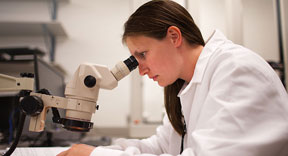 (NewsUSA)
(NewsUSA) – Sponsored News – Millions of people are living longer and in better health, thanks to major advances in medical technology that have produced new high-quality, cost-effective therapies.
– Sponsored News – Millions of people are living longer and in better health, thanks to major advances in medical technology that have produced new high-quality, cost-effective therapies.
Half a century ago, a pacemaker used to treat cardiac arrhythmias was the size of a hockey puck. Today, it’s smaller than a AAA battery. Since 1980, medical technology has reduced fatalities from heart disease and stroke by more than half, reported the National Center for Health Statistics. In that same period, average life expectancy in the United States has increased dramatically — by over five years.
Advances in medical technology are significantly improving patient outcomes and health-system savings, helping people lead longer and better lives. Global medical device manufacturer St. Jude Medical (www.sjm.com) estimates that throughout its 40-year history, approximately 70 million patients have been touched by one of its many life-saving technologies.
New pioneering technologies are on the horizon thanks to the continued commitment for improved medical care. Companies like St. Jude Medical are exploring creative and unique partnerships to drive disease awareness and improve patient outcomes. Here are some of the most important new innovations:
* Patients today can connect with their physicians through smart technology offering remote monitoring — transmitters that communicate data about a patient’s condition to their doctors without the patient having to leave home. Research shows that telemedicine expands access to health services for people living in rural or remote areas, and can assist in health care outreach to people who may be vulnerable to untreated chronic conditions.
* In electrophysiology lab systems, used by doctors to manage heart-rhythm disorders, technological innovations have helped doctors reduce costs, streamline workflow and improve quality of care. Integrated lab products from St. Jude Medical make up technologies that let doctors performing cardiac procedures navigate with the help of prerecorded X-ray images. This reduces exposure to radiation for health care personnel and patients.
* The use of colonoscopy and sigmoidoscopy screening tests have prevented some 560,000 people from developing colorectal cancer, according to a Milken Institute study.
* Implantable spinal cord stimulation devices, which can provide relief from chronic pain by interrupting pain signals to the brain, are now available in upgradeable technology. Patients will be able to access new, improved therapies via software updates as soon as they are approved, instead of having to undergo repeat surgical procedures to have their devices replaced when new technology comes along.
* Implantable devices that provide deep brain stimulation can help reduce the symptoms of Parkinson’s disease and essential tremor. About 1 million Americans have Parkinson’s disease, according to the National Institutes of Health.
* Insulin pump usage results in better blood-sugar control, resulting in fewer clinical complications, reduced emergency room visits and decreased hospital admissions, according to a study by the Milken Institute.
Of course, medical technology still faces major challenges, especially in expensive epidemic diseases such as heart failure, atrial fibrillation and other heart conditions. By 2030, the Centers for Disease Control and Prevention projects cardiovascular disease to cost more than $1 trillion.
But today, more than ever, companies like St. Jude Medical are leading the way to solve some of the world’s biggest health care challenges. Scientists, engineers and inventors work with imagination to transform the treatment of expensive epidemic diseases and save and improve lives.
Breakthrough Medical Technologies Save and Improve Millions of Lives

Featured Partner
Contributor
Font Size:

